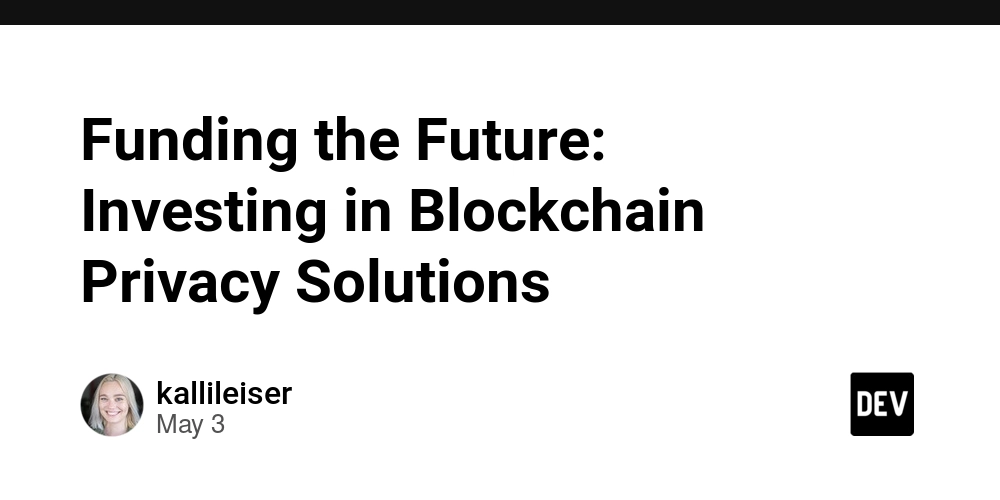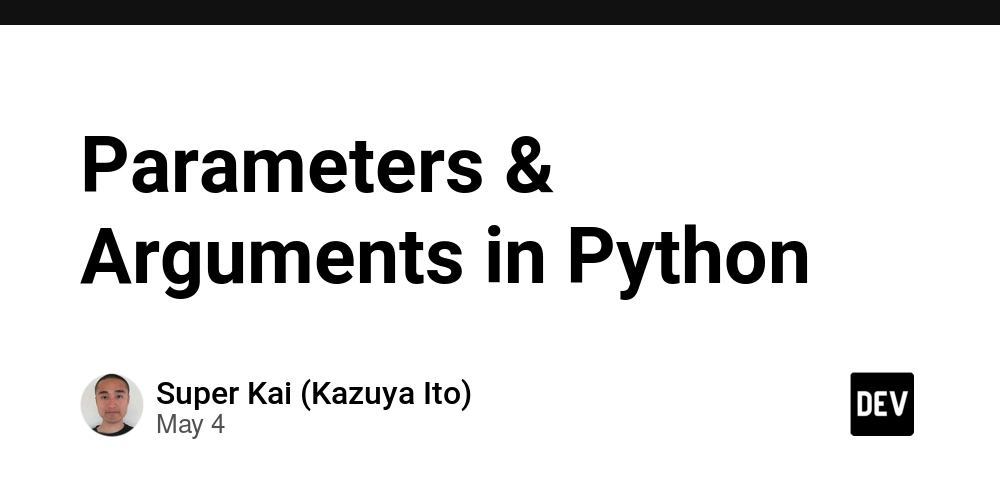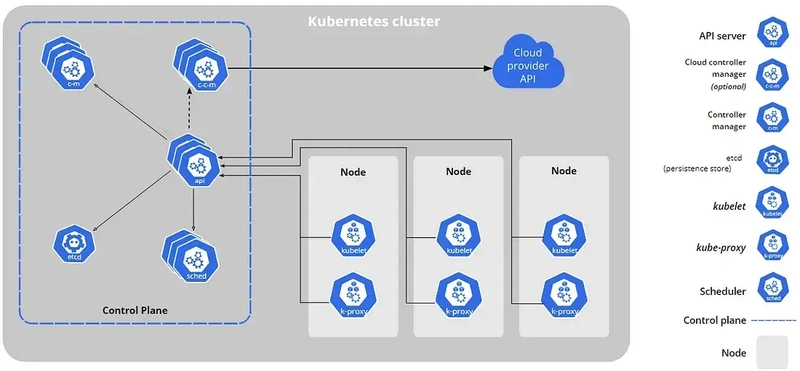Funding the Future: Investing in Blockchain Privacy Solutions
Abstract Blockchain technology is evolving rapidly, and its privacy challenges are drawing significant investment from venture capital firms, corporate investors, and public grants. This post discusses the importance of blockchain privacy, key funding players, underlying technologies such as zero-knowledge proofs and stealth addresses, and the challenges facing the ecosystem. We explore real-world applications in projects like Monero and Zcash; the integration with AI, IoT, and decentralized finance (DeFi); and the future outlook for privacy innovations. Along the way, we include tables, bullet lists, and relevant hyperlinks to guide you through the layered landscape of investing in blockchain privacy solutions. Introduction Blockchain has revolutionized the digital world, offering decentralized, transparent, and immutable ledgers for a variety of applications. Yet, the public nature of many blockchains means that user privacy is often compromised. As privacy demands increase in a world where data security is critical, innovative blockchain privacy solutions are emerging. Funding these innovations is essential to achieve the balance between transparency and confidentiality. In this blog post, we delve into how investments in blockchain privacy solutions are shaping the future of digital transactions and open-source development. We will draw insights from the original article on Funding for Blockchain Privacy Solutions and expand by providing historical context, technical details on privacy technologies, real-world examples, and a look into future trends that integrate blockchain with AI, IoT, and DeFi. Whether you are a developer, investor, or enthusiast, understanding this evolving space is crucial. Background and Context The Evolution of Blockchain Blockchain technology emerged as the backbone of cryptocurrencies, championing the ideals of decentralization and trustless transactions. Early blockchains like Bitcoin focused on pseudonymity, where user identities remained masked by public addresses. However, this model doesn't offer true anonymity—transactions remain traceable. Evolving beyond simple cryptographic puzzles, modern blockchains are incorporating advanced privacy measures to shield sensitive data. Key Privacy Concepts Zero-Knowledge Proofs (ZKPs): ZKPs allow one party to prove to another that a statement is true without revealing any additional information. Projects like Zcash have leveraged zk-SNARKs (a variant of ZKPs) to ensure transactions remain confidential. To explore how zero-knowledge proofs function on blockchain, check out Zero-Knowledge Proofs on Blockchain. Stealth Addresses: These techniques allow senders to create one-time addresses for receivers, helping preserve user privacy. Although not foolproof against all forms of tracking, stealth addresses move a step closer to achieving genuine confidentiality. Ring Signatures: Employed by privacy coins such as Monero, ring signatures enable a group of users to sign a transaction, making it extremely hard to trace precisely which member authorized it. The Ecosystem of Funding Investment in privacy solutions is not confined to a single sector. Funding flows from multiple sources: Venture Capital Firms: Firms like Andreessen Horowitz (a16z) are at the forefront, investing heavily in blockchain projects that promise robust privacy features. Blockchain-Specific Funds: Initiatives such as the Electric Coin Company provide targeted funding to projects focusing on privacy-enhancing technologies. Corporate Investments: Companies like IBM Blockchain are engaging in research and development to integrate privacy solutions within enterprise settings. Public Funding and Grants: Organizations like the Ethereum Foundation offer grants to foster research into privacy and scalability, ensuring diverse funding channels for innovation. Below is a table summarizing key funding players and their roles: Funding Source Key Players Role in Privacy Projects Venture Capital Firms Andreessen Horowitz Early-stage investments, strategic guidance Blockchain-Specific Funds Electric Coin Company Funding technology research and deployment Corporate Investments IBM Blockchain Scaling enterprise privacy technologies Public Funding and Grants Ethereum Foundation Supporting open-source research and community projects Core Concepts and Features Merging Transparency with Confidentiality A significant challenge in blockchain design is balancing transparency with privacy. While transparency ensures that transactions are verifiable on public ledgers, it risks exposing user data. The following are core features and technical approaches that are shaping privacy-enhanced blockchains: Zero-Knowledge Proofs (ZKPs): These proofs not only validate the correctness of transactions without revealing details but also facilitate scalability as transaction data remains light

Abstract
Blockchain technology is evolving rapidly, and its privacy challenges are drawing significant investment from venture capital firms, corporate investors, and public grants. This post discusses the importance of blockchain privacy, key funding players, underlying technologies such as zero-knowledge proofs and stealth addresses, and the challenges facing the ecosystem. We explore real-world applications in projects like Monero and Zcash; the integration with AI, IoT, and decentralized finance (DeFi); and the future outlook for privacy innovations. Along the way, we include tables, bullet lists, and relevant hyperlinks to guide you through the layered landscape of investing in blockchain privacy solutions.
Introduction
Blockchain has revolutionized the digital world, offering decentralized, transparent, and immutable ledgers for a variety of applications. Yet, the public nature of many blockchains means that user privacy is often compromised. As privacy demands increase in a world where data security is critical, innovative blockchain privacy solutions are emerging. Funding these innovations is essential to achieve the balance between transparency and confidentiality. In this blog post, we delve into how investments in blockchain privacy solutions are shaping the future of digital transactions and open-source development.
We will draw insights from the original article on Funding for Blockchain Privacy Solutions and expand by providing historical context, technical details on privacy technologies, real-world examples, and a look into future trends that integrate blockchain with AI, IoT, and DeFi. Whether you are a developer, investor, or enthusiast, understanding this evolving space is crucial.
Background and Context
The Evolution of Blockchain
Blockchain technology emerged as the backbone of cryptocurrencies, championing the ideals of decentralization and trustless transactions. Early blockchains like Bitcoin focused on pseudonymity, where user identities remained masked by public addresses. However, this model doesn't offer true anonymity—transactions remain traceable. Evolving beyond simple cryptographic puzzles, modern blockchains are incorporating advanced privacy measures to shield sensitive data.
Key Privacy Concepts
Zero-Knowledge Proofs (ZKPs):
ZKPs allow one party to prove to another that a statement is true without revealing any additional information. Projects like Zcash have leveraged zk-SNARKs (a variant of ZKPs) to ensure transactions remain confidential. To explore how zero-knowledge proofs function on blockchain, check out Zero-Knowledge Proofs on Blockchain.Stealth Addresses:
These techniques allow senders to create one-time addresses for receivers, helping preserve user privacy. Although not foolproof against all forms of tracking, stealth addresses move a step closer to achieving genuine confidentiality.Ring Signatures:
Employed by privacy coins such as Monero, ring signatures enable a group of users to sign a transaction, making it extremely hard to trace precisely which member authorized it.
The Ecosystem of Funding
Investment in privacy solutions is not confined to a single sector. Funding flows from multiple sources:
Venture Capital Firms:
Firms like Andreessen Horowitz (a16z) are at the forefront, investing heavily in blockchain projects that promise robust privacy features.Blockchain-Specific Funds:
Initiatives such as the Electric Coin Company provide targeted funding to projects focusing on privacy-enhancing technologies.Corporate Investments:
Companies like IBM Blockchain are engaging in research and development to integrate privacy solutions within enterprise settings.Public Funding and Grants:
Organizations like the Ethereum Foundation offer grants to foster research into privacy and scalability, ensuring diverse funding channels for innovation.
Below is a table summarizing key funding players and their roles:
| Funding Source | Key Players | Role in Privacy Projects |
|---|---|---|
| Venture Capital Firms | Andreessen Horowitz | Early-stage investments, strategic guidance |
| Blockchain-Specific Funds | Electric Coin Company | Funding technology research and deployment |
| Corporate Investments | IBM Blockchain | Scaling enterprise privacy technologies |
| Public Funding and Grants | Ethereum Foundation | Supporting open-source research and community projects |
Core Concepts and Features
Merging Transparency with Confidentiality
A significant challenge in blockchain design is balancing transparency with privacy. While transparency ensures that transactions are verifiable on public ledgers, it risks exposing user data. The following are core features and technical approaches that are shaping privacy-enhanced blockchains:
Zero-Knowledge Proofs (ZKPs):
These proofs not only validate the correctness of transactions without revealing details but also facilitate scalability as transaction data remains lightweight and secure.Smart Contracts with Privacy Layers:
Projects like Enigma focus on creating smart contracts that maintain data confidentiality while executing on decentralized networks. Integrating privacy into contract logic is becoming essential for applications in finance, healthcare, and supply chain management.On-Chain vs. Off-Chain Privacy:
Solutions are emerging both on-chain (embedded into the protocol itself) and off-chain (utilizing sidechains or additional layers), each with unique trade-offs concerning security and performance.
Bullet List: Key Privacy Technologies and Their Features
Zero-Knowledge Proofs:
Enhances transaction confidentiality.
Reduces the risk of data exposure.
Utilizes sophisticated cryptographic algorithms.Stealth Addresses:
Creates unique addresses for each transaction.
Minimizes traceability of funds.
Simplifies recipient verification without exposing identity.Ring Signatures:
Obfuscates the signer within a group.
Balances decentralization with anonymity.
Widely used in leading privacy coins.
Applications and Use Cases
Blockchain privacy solutions are not merely theoretical—they have practical, real-world applications that span a variety of industries. Here are a few notable examples:
1. Cryptocurrency Privacy Coins
Monero (XMR):
Monero is well known for its use of ring signatures and stealth addresses. Its continuous innovations ensure robust privacy, attracting users looking for confidential transactions.Zcash (ZEC):
By implementing zk-SNARKs, Zcash allows optional privacy where transaction details (sender, receiver, and amount) are shielded from public view.
2. Decentralized Finance (DeFi) and Digital Identity
As DeFi evolves, privacy plays a critical role in ensuring regulatory compliance without sacrificing the confidentiality of sensitive financial data. Enhanced privacy protocols make it possible for blockchain-based lending, exchanges, and insurance products to maintain user trust.
3. Enterprise Blockchain Solutions
Major corporations are investing in blockchain for improving supply chain transparency and secure data management. IBM Blockchain, for instance, is not only exploring blockchain for efficiency improvements but also for bolstering privacy in critical enterprise applications.
Real-World Use Case Table
| Use Case | Description | Example Projects |
|---|---|---|
| Cryptocurrency Transactions | Secure and private transactions on public ledgers | Monero (XMR), Zcash (ZEC) |
| Decentralized Finance (DeFi) | Leveraging privacy for compliance and user data security in financial apps | Privacy-enhanced lending platforms, DeFi protocols |
| Enterprise Applications | Secure supply chain, legal documentation, and digital identity management | IBM Blockchain, smart contracts with privacy layers |
Challenges and Limitations
Despite the potential, significant challenges remain in the realm of blockchain privacy funding:
Regulatory Concerns
Governments worldwide are scrutinizing privacy-enhancing technologies due to fears of money laundering, tax evasion, and other illicit activities. The regulatory environment can be unpredictable and may hinder innovation. Developing privacy features that comply with global standards while retaining their core functionality is complex.
Technical Complexity and Scalability
Implementing robust privacy solutions such as zero-knowledge proofs demands considerable computational resources. As these protocols adopt more layers of complexity, the performance issues may arise:
High Computational Overhead:
Cryptographic algorithms, although secure, require powerful hardware for efficient processing.Scalability Constraints:
Increased data load from privacy features can reduce throughput on public blockchains unless innovative scaling solutions are developed.
Market Readiness and Adoption
The market for privacy solutions is still maturing. Investors require clear market demand and sustainable business models to commit capital. Further, widespread adoption is dependent on user education and overcoming the technical steep learning curve. The following bullet list summarizes the primary challenges:
- Regulatory Uncertainty: Legal implications and compliance issues.
- Technical Overhead: Need for advanced infrastructure and scalability.
- Market Hesitation: Uncertainty about user adoption and sustainable revenue models.
Investment Risks
Investors should also be aware of the inherent risks associated with funding bleeding-edge technology. While venture capital interest remains high, projects without clear use cases or regulatory clarity may face market volatility.
Future Outlook and Innovations
In the rapidly advancing field of blockchain privacy, several trends and innovations are worth noting:
Integration with AI and IoT
Artificial Intelligence (AI) and the Internet of Things (IoT) are expected to play significant roles. By integrating AI, blockchain systems can enhance anomaly detection, fraud prevention, and secure data processing. Meanwhile, IoT devices will increasingly rely on blockchain for secure, decentralized data exchanges where privacy is paramount.
AI-Driven Privacy Enhancements:
Intelligent systems can dynamically adjust privacy parameters based on real-time threat analysis.IoT Security:
Blockchain can secure vast networks of connected devices by ensuring data integrity and privacy.
Decentralized Finance (DeFi) Evolutions
DeFi protocols are evolving rapidly. Investors are keenly interested in platforms that offer:
- Privacy-Aware Lending and Borrowing: Where user financial details remain confidential yet verifiable.
- Compliance-Driven Privacy Solutions: Built to satisfy regulatory oversight while preserving user anonymity.
These developments are expected to attract further funding from traditional financial institutions and innovative crypto funds.
Policy Advocacy and Global Collaboration
Global collaboration between policymakers, academia, and tech companies will help forge regulatory frameworks that support both innovation and user privacy. Initiatives like those led by the Ethereum Foundation illustrate the positive impact of collaborative funding efforts.
Trends in Ecosystem Partnerships
The future is likely to see more integrated partnerships between blockchain developers, academic institutions, and corporate giants. For example:
- Collaborative Research Projects: Joint ventures between universities and blockchain companies can accelerate breakthroughs in privacy technology.
- Cross-Sector Investments: Combining resources from public and private sectors to build resilient and scalable blockchain solutions.
Insights from Dev.to Articles
Explorations by the community on platforms like Dev.to demonstrate a growing interest in sustainable funding models for blockchain privacy and open-source projects. Recent posts such as Unlocking the Future: Pycardano and the Evolution of Open Source Blockchain Development and Open Source: A Goldmine for Indie Hackers provide insights into innovative strategies for securing financial backing while promoting open-source development.
Summary
Blockchain privacy solutions are essential for protecting sensitive data in a rapidly digitizing world. From advanced cryptographic techniques—such as zero-knowledge proofs, stealth addresses, and ring signatures—to the multifaceted funding landscape comprising venture capital, blockchain-specific funds, corporate investments, and public grants, the investment ecosystem is as diverse as it is innovative.
We have explored:
The Evolution of Blockchain and the Need for Privacy:
How transparency and confidentiality can coexist using advanced technologies.Core Technical Concepts:
Including zero-knowledge proofs, smart contracts, and privacy protocols.Real-World Applications:
From privacy-focused cryptocurrencies like Monero and Zcash to enterprise and DeFi solutions.Challenges and Limitations:
Including regulatory hurdles, scalability issues, and market readiness.Future Trends:
Such as AI and IoT integration, DeFi innovations, and collaborative policy initiatives that promise to shape the future of blockchain privacy.
The balanced approach — merging technology with strategic funding — underscores that investing in blockchain privacy solutions is not just about securing transactions, but also about protecting digital identity and fostering sustainable innovation.
In conclusion, as digital transactions grow in volume and complexity, funding for advanced privacy solutions stands at the forefront of ensuring that blockchain technology remains a secure, decentralized, and trusted evolution for businesses and consumers alike. For further insights, consider exploring additional resources such as Blockchain Council for educational content, or review real-world challenges in Blockchain Project Funding Challenges. By staying informed and supporting innovative projects, investors can play a critical role in shaping a more secure digital future.
Investing in blockchain privacy is investing in the security and sustainability of tomorrow’s digital ecosystem, ensuring that while transactions remain transparent and verifiable, the privacy of users is never compromised.
Whether you're a startup founder, an investor, or a blockchain developer, the drive towards integrating sophisticated privacy technologies will continue to pave the way for innovative and responsible digital infrastructures. Stay tuned as the convergence of funding and technology reshapes how we experience data security on a global scale.





































































































































































![[The AI Show Episode 145]: OpenAI Releases o3 and o4-mini, AI Is Causing “Quiet Layoffs,” Executive Order on Youth AI Education & GPT-4o’s Controversial Update](https://www.marketingaiinstitute.com/hubfs/ep%20145%20cover.png)




























































































































![[DEALS] Microsoft 365: 1-Year Subscription (Family/Up to 6 Users) (23% off) & Other Deals Up To 98% Off – Offers End Soon!](https://www.javacodegeeks.com/wp-content/uploads/2012/12/jcg-logo.jpg)




![From Art School Drop-out to Microsoft Engineer with Shashi Lo [Podcast #170]](https://cdn.hashnode.com/res/hashnode/image/upload/v1746203291209/439bf16b-c820-4fe8-b69e-94d80533b2df.png?#)








































































































(1).jpg?#)































_Inge_Johnsson-Alamy.jpg?width=1280&auto=webp&quality=80&disable=upscale#)












































































































![Apple to Split iPhone Launches Across Fall and Spring in Major Shakeup [Report]](https://www.iclarified.com/images/news/97211/97211/97211-640.jpg)
![Apple to Move Camera to Top Left, Hide Face ID Under Display in iPhone 18 Pro Redesign [Report]](https://www.iclarified.com/images/news/97212/97212/97212-640.jpg)
![Apple Developing Battery Case for iPhone 17 Air Amid Battery Life Concerns [Report]](https://www.iclarified.com/images/news/97208/97208/97208-640.jpg)
![AirPods 4 On Sale for $99 [Lowest Price Ever]](https://www.iclarified.com/images/news/97206/97206/97206-640.jpg)

































![[Updated] Samsung’s 65-inch 4K Smart TV Just Crashed to $299 — That’s Cheaper Than an iPad](https://www.androidheadlines.com/wp-content/uploads/2025/05/samsung-du7200.jpg)


































































